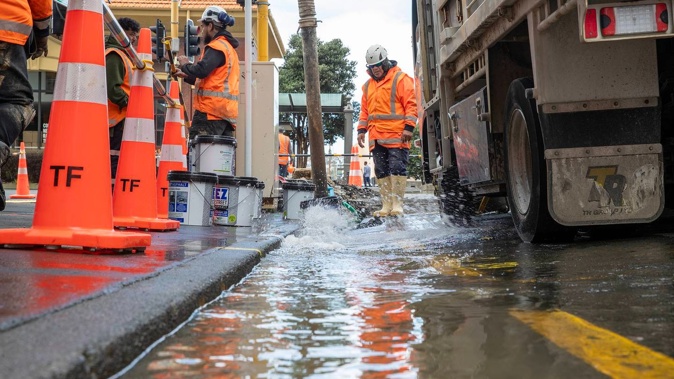
It hasn’t taken long has it.
Since returning from the summer break, I’ve been watching the reaction to the new Government. There has already been plenty of criticism.
I’m hearing and reading views that they’re not moving quickly enough, that the new Prime Minister is not aggressive enough and that the new Police Minister is too soft.
Hang on a minute! I think we’re being impatient.
A lot of the early criticism is coming from individuals and organisations that established themselves as campaigners against the policies of the last Labour government.
Those campaigners variously had misgivings about Three Waters, co-governance, education, crime, and plenty of other aspects of our lives that they thought were poorly managed.
The great majority of those organisations and their spokespeople appeared to receive what they wanted when last year’s general election delivered a new government. That new government was sworn in on November 27, 88 days ago.
The Government had a new 100-day plan with relatively aggressive timelines. It featured plain simple wording that was easily understood with objectives such as “repeal Labour’s ute tax” by December 31, 2023 and “cancel Labour’s Auckland Light Rail project”.
A large component of the objectives set out in that 100-day plan were what many of those anti-government campaigners had been seeking before the election.
Yet here they are, just a couple of months later, in the cafes, on the street, in various media vehicles and on social media, continuing their campaigns for change and complaining that the Government isn’t doing what it said it would do.
From the outside looking in, that 100-day plan seems to have enabled plenty of clarity and focus, and despite parliamentary process typically being appallingly slow, the Government is making real progress on the matters they campaigned on.
A number of major policies have been initiated. Three Waters is gone. Light rail and the ute tax too. Unravelling the financially disastrous Te Pūkenga polytech merger is underway.
Those 88 days have included weekends and the Christmas break in a country notorious for the length of its summer closedown. And yet, we are receiving good communication and seeing real progress on the topics the Government stated as priorities.
Transformation in any organisation is difficult. It takes time. You need to be very clear on what you are trying to achieve, and you have to convince the people whom you need on board to take you where you want to go. Often you have to unravel a mess before you can start building the new way.
But transformation in government is doubly difficult. Firstly, governments and the bureaucracies that accompany them are huge organisations and operationally slow.
In most cases, the parliamentarians with the plans and policies are not in direct control of the people working in those organisations, people whose support is needed to make things happen.
In this instance, and as reflected in the way people voted in the capital, many of those bureaucrats will have been supporters of the previous government, having owed their job or at least their inflated salaries to the policies of the predecessor.
On top of those challenges, the previous government left behind a vast number of challenges, not the least of which was the state of finances. Transformation is difficult at the best of times. But it’s extremely challenging when there is no money.
Prime Minister Christopher Luxon set out some of those challenges in his State of the Nation address last weekend.
Citing the state of the economy and our cost-of -living challenges he described our position as fragile. He talked about our biggest challenges, including the level of government spending and our inadequate productivity. He noted the importance of getting kids back to school and to have them learning the right things. And he even had a crack at those who’ve been abusing the welfare system for far too long.
The intent on these issues is difficult to argue with. Many of them are what the above mentioned ‘campaigners’ have been looking for. The already aggressive 100-day plan is well advanced after just 88 days, notwithstanding that 30 of those days have been weekends and public holidays.
There is no question that the jury is still out on the capability of this Government to deliver. It is very early days in the parliamentary term. Many of us are, quite rightly, impatient to see the improvements that we expect from them.
But we need to give them time. I’m sure that many of the ‘campaigners’, those whose soapbox became prevalent during the six years under Labour, are as impatient as the rest of us. I’m equally sure that some of them rather like their soapbox, and are reluctant to leave it behind. However, for the moment they could take a break.
In the meantime, there is a massive, complex turnaround job to be done. A job that requires changes on every front. Reviews of priorities and spending. Reassessment of policies and changing of behaviours. There will be interruptions along the way, creating urgency around infrastructure and recovery.
But the long-term priorities won’t change. Can’t change. We need education, productivity and a cost regime that fits our income. We need debt levels reduced so we can invest in opportunity. And we need every New Zealander to have the opportunity to do something special with their lives.
Take your Radio, Podcasts and Music with you









